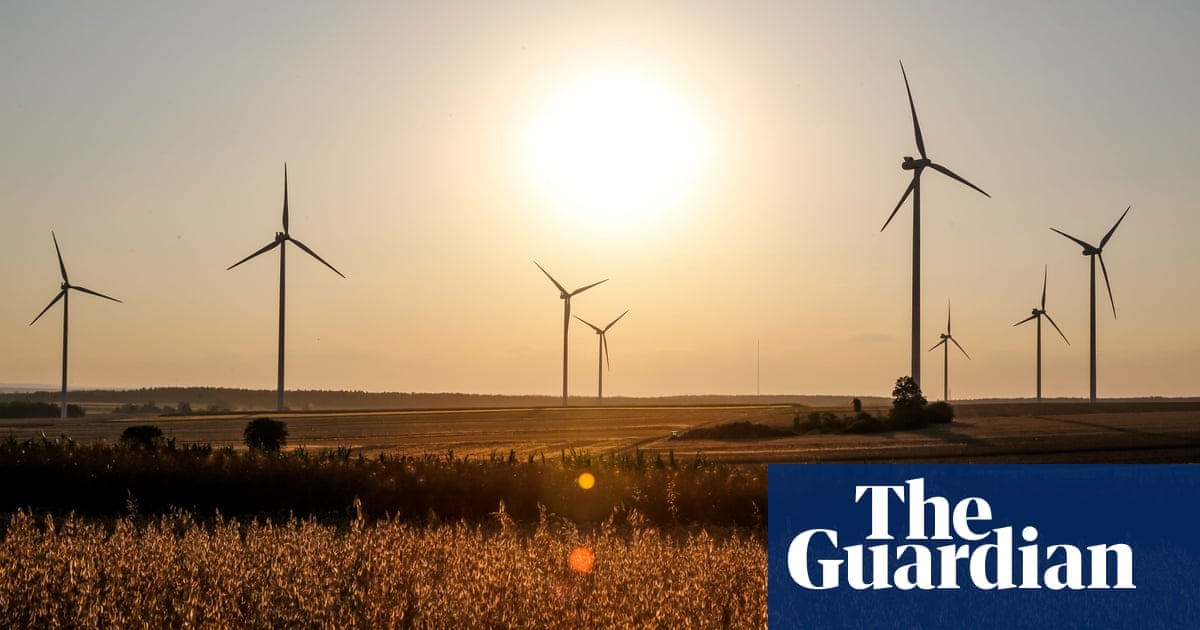- cross-posted to:
- [email protected]
- [email protected]
- cross-posted to:
- [email protected]
- [email protected]
Wind turbines and solar panels have overtaken fossil fuels to generate 30% of the European Union’s electricity in the first half of the year, a report has found.
Power generation from burning coal, oil and gas fell 17% in the first six months of 2024 compared with the same period the year before, according to climate thinktank Ember. It found the continued shift away from polluting fuels has led to a one-third drop in the sector’s emissions since the first half of 2022.
Chris Rosslowe, an analyst at Ember, said the rise of wind and solar was narrowing the role of fossil fuels. “We are witnessing a historic shift in the power sector, and it is happening rapidly.”
It’s great to see plans working, everyone moaned when the infrastructure was being built that it’s too expensive and everyone moaned that transition to renewables is too slow but with the systems in place we’ve reached the point of rapid uptake and are witnessing a sea change.
We’re now at the point we’re going to start seeing coal transportation decline to the point that established lines close, ports redevelop coal infrastructure into general purpose cargo or close all together, meaning the freight line feeding them stop and coal nines only have local industry to sell to - smelting works for example. Coal is horrible to transport and it’ll be great to remove all that heavy machinery and dirty work, replaced with some simple straps of copper running underground.
Power generation from burning coal, oil and gas fell 17% in the first six months of 2024 compared with the same period the year before
I find it odd that those numbers dropped considering Germany closed their reactors in favor or gas and coal in 2023.
Renewables are cheaper than coal. And the replacement wasn’t limited to gas and coal. There are articles which explained that there wasn’t a massive increase in e.g. coal usage.
The CNN article article also briefly puts a high figure for coal on energy, which could lead to confusion.
Germany shut off their final three reactors. It’s not like the country was massively relying on nuclear energy at any point in time really. Took them 12 years since the Fukushima disaster for the phase out.
It’s not like the country was massively relying on nuclear energy at any point in time really.
Germany’s 17 nuclear reactors were generating almost 30% of its electricity a decade ago before they started phasing them out. It was their second largest source of electricity after coal.
Despite having built literally 100s of solar and wind farms in the past decade they still had to increase their coal output by 40 TWh to make up for the gap. A nuclear reactor generates a fuck ton of electricity.
And for what? Statically speaking 800x more people are killed in coal mining accidents per TWh generated than are killed by all nuclear power accidents combined. They phased out their largest source of carbonless electricity and the decision likely killed more people than would have died even if there was a nuclear accident.
^ this.
Ask any engineer, scientist, or even economist: shutting down nuclear plants requires a special kind of stupid.
This ignores the fact that the coal plants were producing greenhouse gas and insane amounts of unhealthy pollution for all these 30-50 years.
While we switched basically to gas generators for each nuclear power plant that went offline our increased power demand was met by renewables.
Since the war in Ukraine Germany has switched gears and replaced a lot of gas power plants with renewables.


